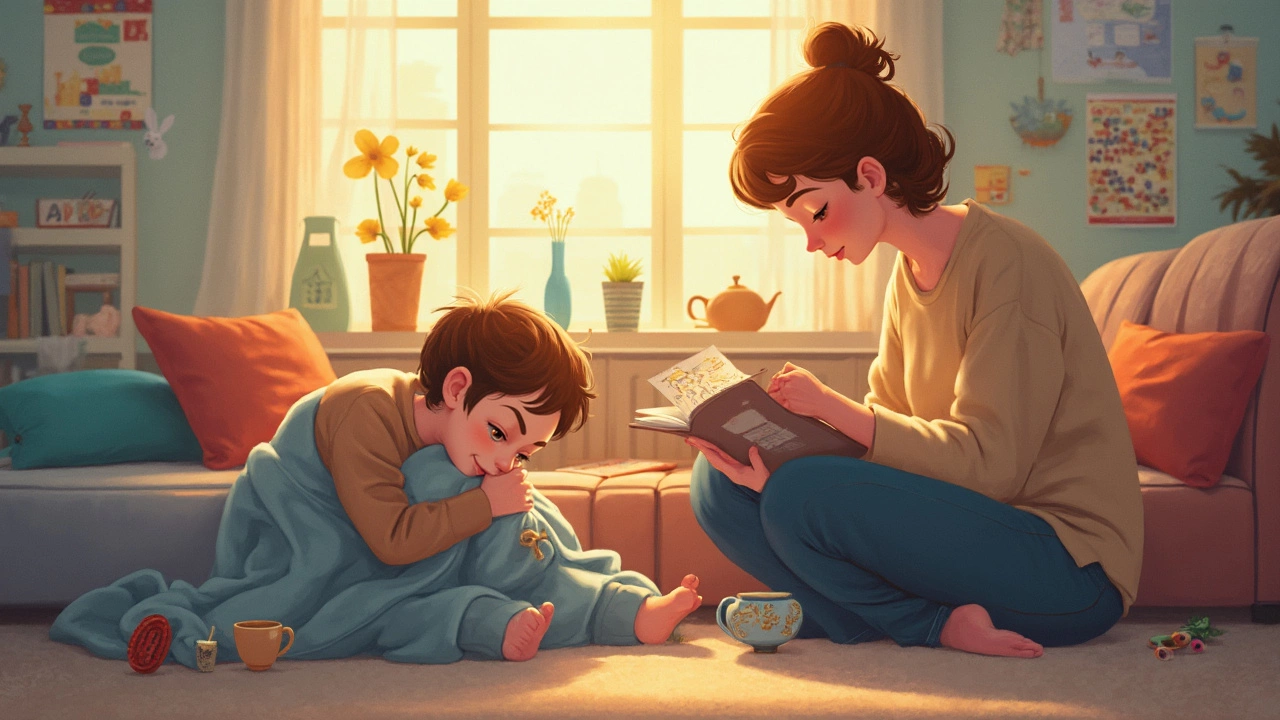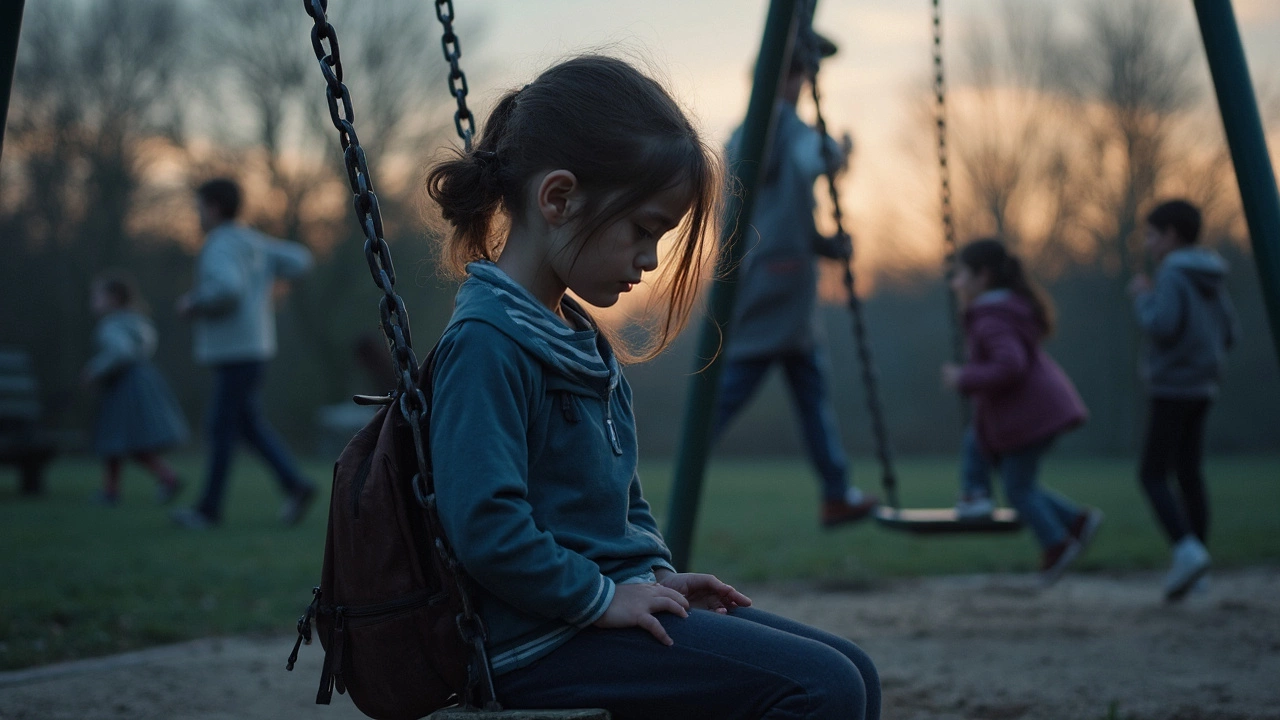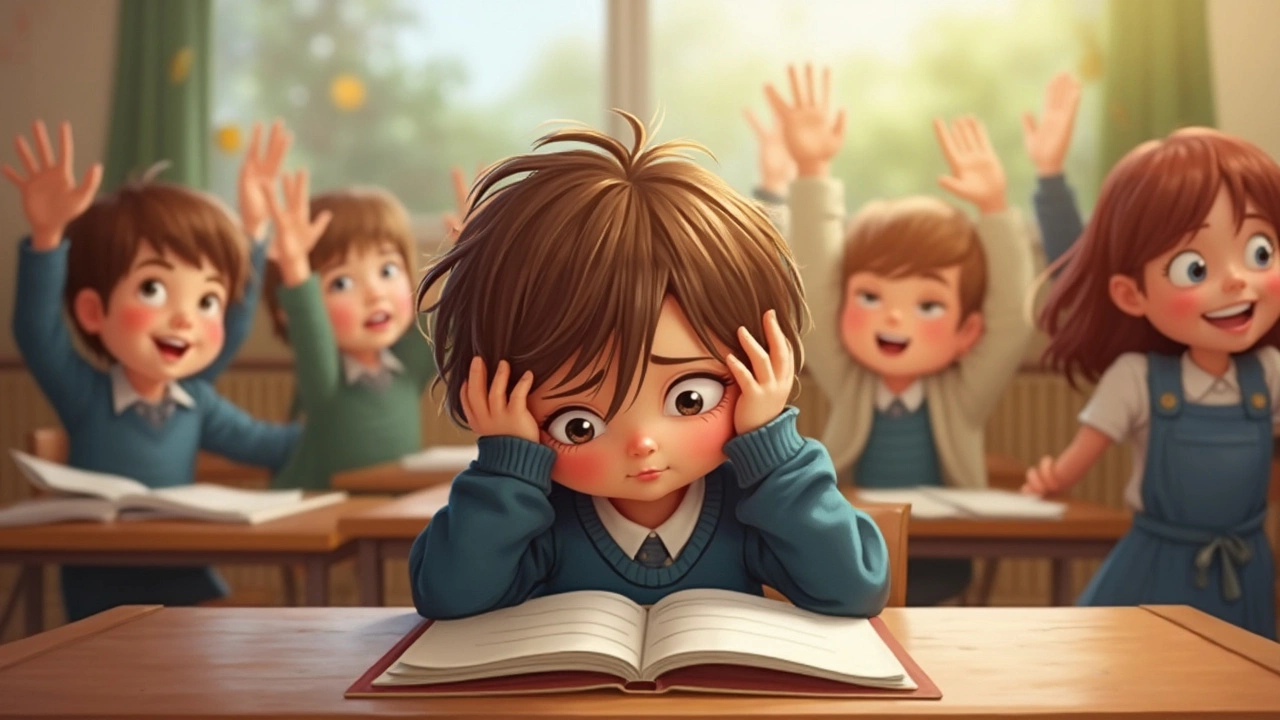The stereotype is everywhere: kids with ADHD are always bouncing off the walls. But ask any parent or teacher, and you’ll hear stories about kids who seem wiped out, struggling to get through the day. So, can kids with ADHD actually feel tired? Absolutely. In fact, for some, fatigue is just as real as fidgeting or restlessness.
Parents often describe their child's energy like a roller coaster—sky high one minute, then crashing the next. That drained feeling isn't laziness or lack of motivation. It's part of how ADHD affects the brain and body. If you’ve got a kid who’s yawning through math class or lying on the couch after school looking totally spent, you’re not alone.
Tiredness in kids with ADHD can sneak up in surprising ways. You may see it in struggles to wake up, zoning out in class, or meltdowns that seem to spark from nowhere. Understanding where this fatigue comes from is the first step to helping kids handle their days better and feel more like themselves.
- Why ADHD Doesn’t Always Mean High Energy
- What Makes Kids With ADHD Feel Tired
- Signs Your Child’s Fatigue Is Linked to ADHD
- Day-to-Day Impacts at Home and School
- Simple Ways to Help Kids Recharge
Why ADHD Doesn’t Always Mean High Energy
People often picture kids with ADHD as go-go-go all day, but that's only a small part of the story. ADHD stands for attention deficit hyperactivity disorder, but every child's experience is different. Some kids are more restless, but others are mainly inattentive or a mix of both. The "hyperactive" label doesn’t fit everyone.
Here’s a surprising fact: not all kids with ADHD have that wild, high-energy behavior. According to the CDC, about one in three children with ADHD actually show more trouble with focus than with excess activity. They’re the "daydreamers"—quiet, distracted, and often tired rather than revved up.
- ADHD isn’t one-size-fits-all. Kids can be hyperactive, inattentive, or both.
- Symptoms can look totally different even in the same classroom.
- Fatigue is real for many, thanks to mental overload from trying to pay attention or follow directions all day.
Even for kids who act hyper, that energy isn’t endless—it can crash fast. The effort it takes to focus, sit still, and control impulses can be exhausting. You might see a burst of activity followed by big dips in energy, sometimes within the same hour.
Check out this quick look at how common each type of ADHD is among kids:
| ADHD Type | % of Kids |
|---|---|
| Combined (both hyperactive & inattentive) | 60% |
| Inattentive type (mostly trouble focusing) | 30% |
| Hyperactive-Impulsive type | 10% |
So when a child with ADHD seems tired or slow instead of bouncing off the walls, that’s not unusual. Kids use up a lot of energy just trying to keep up with daily expectations—especially in environments that don’t fit their brains. This plays a big role in why tiredness goes hand in hand with ADHD for so many kids.
What Makes Kids With ADHD Feel Tired
People often think kids with ADHD just can't sit still, but they rarely talk about how exhausted these kids can feel. Managing symptoms all day long is actually draining for the brain and body. When a child is trying to pay attention, follow directions, and remember things, it’s like their mind is running a marathon—even just sitting in a classroom chair.
Here’s what really eats up their energy:
- Hyper-alertness: The ADHD brain works overtime to keep track of too many things at once. Even simple tasks use up more focus and energy, leaving less in the tank for later.
- Emotional ups and downs: Frustration, anxiety, and overwhelm hit harder and more often for kids with ADHD. All these big feelings lead to emotional fatigue.
- Constant self-control: Trying not to fidget, speak out of turn, or get distracted is like holding your breath all day. Self-control burns a lot of mental energy.
- Sleep struggles: Trouble falling or staying asleep is common. One study found up to half of kids with ADHD have sleep issues, which means they start the day already tired.
- Sensory overload: These kids often notice things others ignore—sounds, lights, tags in shirts. All that extra input can make them exhausted faster.
| Energy Drainer | How It Affects Kids |
|---|---|
| Focus struggles | More effort needed for simple tasks; mental fatigue sets in faster |
| Emotional swings | Mood shifts leave kids feeling wiped out |
| Restless sleep | Less sleep means ongoing tiredness |
| Sensory overload | Lights, sounds, touch overwhelm and tire out the brain |
This mix of physical and mental tiredness is real and has nothing to do with being lazy or unmotivated. When kids with ADHD act tired, it’s usually because their brains are working overtime—even if it’s not obvious to everyone else.

Signs Your Child’s Fatigue Is Linked to ADHD
Fatigue in kids with ADHD isn’t always about just being sleepy after a late night. There are certain quirks and behaviors that often point to fatigue rooted in ADHD, rather than something like illness or just having a busy week. It’s not always obvious—sometimes parents and teachers notice behavior problems or zoning out, not realizing tiredness is the real culprit.
Look for these red flags that suggest your child’s tiredness may have a connection to their ADHD:
- Struggling to pay attention, especially in the afternoon. Kids might seem present in the morning but spacey by lunchtime.
- Frequent emotional meltdowns or irritability. Exhaustion can lower patience, ramp up mood swings, or cause crying spells out of nowhere.
- Physical restlessness or fidgeting gets worse when tired. Ironically, more tiredness sometimes means even more squirming—kids are fighting to stay awake or alert.
- Clumsiness or forgetfulness ramps up. Tired brains make more mistakes, so you might see more tripping, spills, or missing homework.
- Falling asleep at odd times. Some kids crash quickly after school or even during short car rides.
Kids don’t always tell you when they’re tired—sometimes they don’t even realize it. Teachers might say your child is "not paying attention" when the real story is mental fatigue after working so hard just to focus.
Researchers have found that up to 60% of children with ADHD experience sleep problems, which can feed straight into daytime tiredness. Here’s a quick look at what shows up in daily life for many kids who struggle with ADHD-related fatigue:
| Sign | How Common in Kids with ADHD (%) |
|---|---|
| Daytime sleepiness | 53 |
| Frequent fidgeting when tired | 65 |
| Attention drops mid-day | 58 |
| Emotional outbursts | 61 |
If you notice your child’s attention span shrinking, or moods shifting quickly when they're dragging, consider hidden tiredness as part of the puzzle. Paying attention to these clues can make a big difference when figuring out what they need to succeed both at home and at school.
Day-to-Day Impacts at Home and School
Fatigue in kids with ADHD makes regular routines way tougher than most people realize. At home, tired kids might drop their bags at the door, skip chores, argue over homework, or crash on the couch for hours. Their energy isn't just "lower"—it's like their gas tank hits empty, sometimes way before the day is done. Simple instructions can start feeling impossible, leading to frustration all around.
At school, this tiredness shows up as blank stares at the board or zoning out when the teacher gives directions. Sometimes it looks like daydreaming, doodling, or just barely hanging on until recess. Studies show that kids with ADHD are more likely to report sleep problems and daytime sleepiness than their peers—up to 70% of them, according to research from the CDC and the National Sleep Foundation. That’s a big chunk of the classroom.
With all this, it’s easy for exhaustion to get mistaken for attitude or defiance. One elementary school counselor puts it like this:
"Kids with ADHD aren't lazy. Their brains are working overtime just to keep up, and that burns through their energy faster. What looks like not caring is usually just being totally wiped out."
Here’s what parents and teachers might notice when tiredness takes over:
- Homework that drags on for hours because focus drops fast
- Frustration with even easy tasks—like packing a backpack or setting the table
- Frequent meltdowns in the afternoon or evening
- Needing extra reminders to get started or finish chores and assignments
- Complaints of headaches or wanting to nap right after school
Teachers also share that when tiredness sets in, kids with ADHD have a much harder time following multi-step instructions. They might forget what they were supposed to do, leave assignments unfinished, or rely heavily on adults for help.
| Challenge | At Home | At School |
|---|---|---|
| Tiredness starts early | Hard to get out of bed, slow mornings | Spacing out during first class |
| Midday energy crash | Short temper, more arguments | Loss of focus before lunch |
| Evening fatigue | Homework battles, irritability | Missed details on assignments |
Recognizing the signs of ADHD-related tiredness helps adults step in before kids hit their breaking point. A short brain break, snack, or switching activities—even for a few minutes—can help recharge them enough to get back on track. Listening, instead of just pushing harder, makes a real difference at home and in the classroom.

Simple Ways to Help Kids Recharge
When a child with ADHD feels tired, most of the usual tricks like early bedtimes or nagging about screen time don't always solve the problem. There are some facts about fatigue and ADHD you might not hear often: Research from 2023 in the Journal of Attention Disorders showed over 60% of kids with ADHD deal with sleep issues, which messes with their energy the next day. Help isn’t just about better sleep—it’s about learning how to balance activity, downtime, and brain breaks all day long.
Here are some practical methods families and teachers say actually help:
- Routine wins. Predictable schedules help kids know what to expect, and that lowers anxiety and exhaustion. Simple morning and bedtime routines, even during weekends, make a big difference.
- Move, but don’t overdo it. Short, regular movement breaks (like 5 minutes of stretching or a fast walk) keep energy steady without draining reserves.
- Snack smart. Protein-rich snacks—like cheese sticks, yogurt, or nut butter—keep blood sugar more stable than high-sugar treats.
- Chunk tasks. Breaking work or chores into smaller, shorter steps makes them less overwhelming and lets kids see progress faster.
- Teach brain breaks. Every 20-30 minutes, switch activities or take a break to doodle or stand up. Tiny resets can kickstart focus and cut down on that zombie feeling.
- Guard sleep. Good sleep hygiene, like no screens in bed and the same wake-up time every day, helps the brain recover overnight.
- Watch the screen time. Too much video or phone use before bed can fry attention and make falling asleep even harder.
Kids with ADHD do best when you catch low energy early. If you notice yawning, irritability, or zoning out, it’s a sign to pause and reset, not push through until meltdown.
Here’s a quick snapshot of the main things that re-energize kids with ADHD, based on feedback from real families:
| Recharge Method | Reported Effectiveness (%) |
|---|---|
| Short Breaks | 85 |
| Consistent Sleep Schedule | 78 |
| Movement/Exercise | 72 |
| Healthy Snacks | 65 |
Every kid is different, so keep track of what really works. A notebook or simple checklist can help spot patterns. Most importantly, it’s okay to slow down—recharging doesn’t just help with tiredness, it sets kids up for better focus and fewer meltdowns later.

